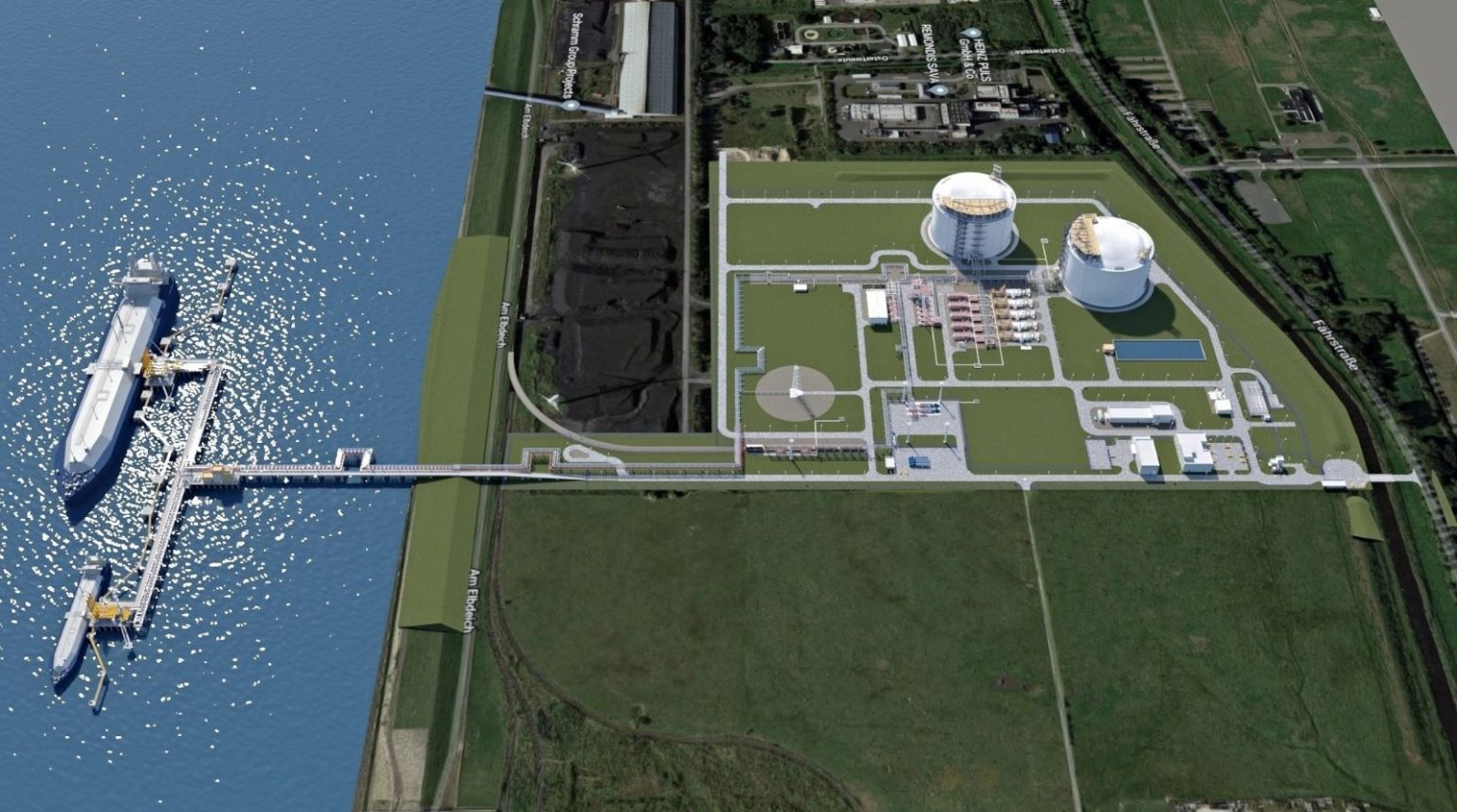Dutch gas grid operator Gasunie expects the Brunsbuettel FSRU-based LNG import terminal in Germany to go online by the end of this year, as Germany looks to reduce reliance on Russian gas pipeline gas.
Gasunie has earlier this year joined forces with the German government and RWE to build the onshore Brunsbuettel terminal, developed by German LNG Terminal and with a capacity of 8 billion cbm.
However, Germany is moving quickly with its plans to build infrastructure and become a major LNG importer, and has introduced the LNG acceleration law and chartered four FSRUs.
These vessels include the two units RWE chartered from Hoegh LNG, and the Dynagas-owned 174,000-cbm Transgas Force and Transgas Power that will go on charter to Uniper.
Uniper has already started building the country’s first LNG facility in Wilhelmshaven and expects to commission it this winter.
In a statement released on July 8, Gasunie’s German unit also said that it expects the FSRU-based terminal in Brunsbuettel to go online by the end of this year, but the firm did not reveal more information regarding the developers of the project.
The FSRU-based LNG terminal in Brunsbuettel and the onshore project developed by German LNG Terminal are two separate developments.
A spokesperson for German LNG Terminal told LNG Prime on Wednesday that Gasunie is not involved in the FSRU or the jetty for the fast-track Brunsbuettel facility. The company is only working on the pipelines.
Such as the Uniper facility, this terminal will host one of the four chartered FSRUs as well.
RWE will probably install one of the two FSRUs it chartered from Hoegh.
LNG pipeline contract
Gasunie awarded a contract for the Brunsbuettel LNG connecting pipelines to a joint venture of Germany’s Friedrich Vorwerk and the Austrian Habau Group.
The contract has a price tag of 120 million euros ($120 million), Friedrich Vorwerk said in a separate statement.
It includes a new, approximately 3 km long pipeline section (ETL 185), connecting the Brunsbuettel port area with the existing gas pipeline of SH Netz, the firm said.
This pipeline will have a capacity of up to 4 bcm and Gasunie Deutschland has already applied to receive relevant permits.
From the beginning of 2023, the transmission system operator will then realize an additional, 55 km long transport pipeline (ETL 180) from Brunsbuettel to Hetlingen.
This would enable the feed-in of “significantly larger quantities” of regasified LNG into the existing grid, Friedrich Vorwerk said.
(Article updated to include a comment by a spokesperson from German LNG Terminal.)

